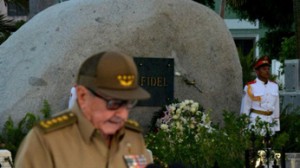Partial results from the Afghan presidential vote show former Foreign Minister Abdullah Abdullah slightly ahead of Ashraf Ghani.
With about 500,000 votes in 26 provinces counted, Dr Abdullah has 41.9% with Mr Ghani on 37.6%. Some seven million votes were cast in total across Afghanistan’s 34 provinces in the 5 April poll. Full preliminary results are due by 24 April. A runoff will take place in May if no candidate gets a majority. The Independent Election Commission has warned that the front-runner could easily change as counting continues in the coming days. “Maybe today one candidate looks strong. Tomorrow, maybe another will pull ahead,” commission chairman Ahmad Yousuf Nouristani said. The results will now emerge every day, and some ballot boxes have yet to arrive in Kabul from remote places travelling by donkey, says the BBC’s David Loyn in Kabul. Dr Abdullah’s team have exhibited quiet confidence since the election, our correspondent adds. The partial results gave another main contender and former Foreign Minister, Zalmai Rassoul, who is believed to be President Hamid Karzai’s preferred successor, 9.8% of the vote. Possible electoral fraud has been a concern, but the election body responsible for dealing with complaints says it will be weeks before it rules on the issue. There were allegations of large-scale fraud when Mr Karzai was re-elected in 2009 – Dr Abdullah came second in that poll. The Election Complaints Commission said there appeared to have been less fraud in this election. “We have received 1,892 complaints with evidence, (including) 1,382 through phone, spokesman Nader Mohseni said on Sunday. He said 870 fell into the most serious category. There were also fears that Taliban violence could disrupt the election, but millions turned out despite threats and several high-profile attacks in the run-up to election day. The vote heralds the first democratic transfer of power in Afghanistan. The next president will have to contend with a range of difficult issues, including continuing Taliban violence and how Afghanistan adapts after the withdrawal of foreign combat forces this year. – BBC News




